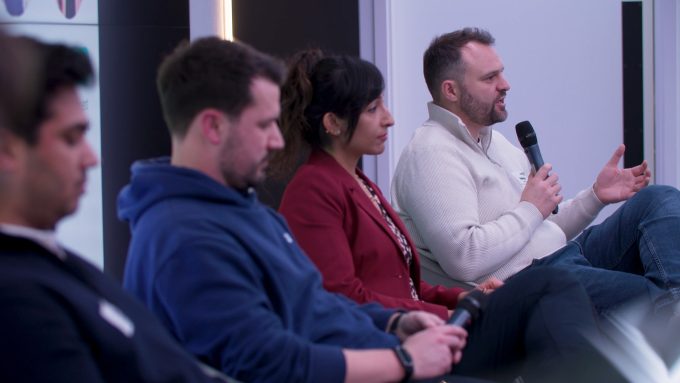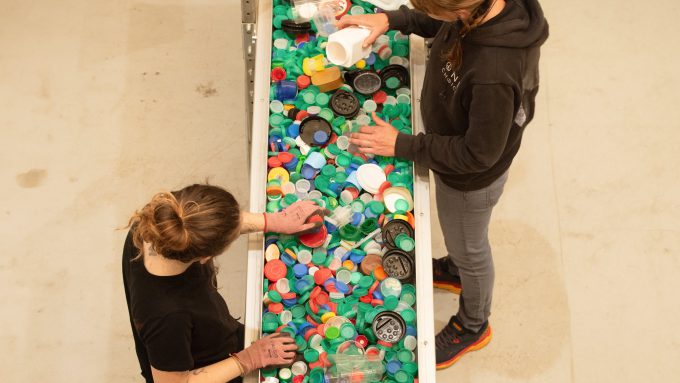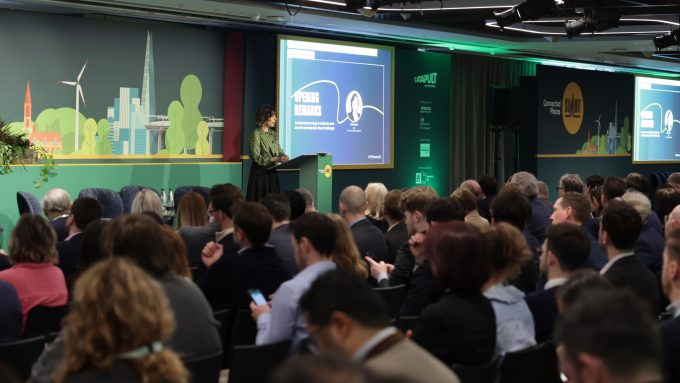
Clean Futures powers commercialisation for West Mids innovators

Eighteen out of 20 companies participating in year one of the Clean Futures Accelerator have entered into serious discussions with new customers about their innovations, with contracts under consideration.
What’s more, £2.6 million has been secured for SMEs through contracts or research and development funding; with a further £43 million in the commercial pipeline. So far, £1.3 million has been raised in private investment, with a further £27 million in pipeline for companies involved in the Clean Futures programme; designed to encourage new technology aimed at reducing the transport sector’s reliance on fossil fuels.
In addition, 38 new jobs have been created for SMEs on the programme, and over 2000 networking introductions have been seen as a result of regional events.
One SME involved in the programme’s first year – which culminated in two demonstration showcases in the West Midlands this spring – is the AceOn Group, which has developed a portable energy storage system using second-life electric car batteries. It is pursuing two business opportunities within the rail sector after taking part in the programme.
Another firm is Box Tube, which had come up with a rapid means of transferring freight in ‘tote boxes’ onto lorries and trains. It has entered into discussions with a pair of fellow participants on the cohort about moving goods in a more sustainable way, and is collaborating with a third.
Both companies have high hopes for the next few years.
“Clean Futures linked us up with one of the largest rail procurement companies in the UK which works with Network Rail,” says AceOn’s managing director Mark Thompson. “We also spoke with a tram operator; providing a quote to supply a battery system for a tram.”
The company’s battery packs are currently used in several market sectors including construction, defence and medical, and for e-mobility applications; and were supplied to the maritime sector for use on ships serving wind farms. Participation in the Clean Futures accelerator represented a chance for the company to expand its transport offer into rail.
“The programme has helped to connect us to the rail industry, and to the right people who have given advice on investment and how to pitch ourselves properly.”AceOn’s managing director Mark Thompson
Box Tube’s founder Alan Holford describes the Clean Futures programme as being “absolutely transformative” for his business. “It provided a structure to help guide me towards a new goal,” he said.
“I was initially thinking there was no way I would be able to get on in rail without having already built up the road logistics elements of the business. But I have found much more traction within the rail sector thanks to the accelerator.”
Alan added that partners on the programme including Connected Places Catapult have made it “abundantly clear that they will be supporting us on our whole journey until we have a level of success, rather than just helping us during the programme and wishing us good luck”.
Exploring the market for second life batteries
AceOn Group was founded in 2010 and made an appearance on the television show Dragons’ Den, where Mark Thompson pitched for funding for a portable solar powered generator he planned to sell for residential use in Africa.
He later switched his attention to energy security, with housing and commercial projects in the West Midlands; providing batteries to store solar energy in order to reduce demand on the National Grid during periods of peak demand. This spring, the company welcomed Ed Miliband, now the Energy Security & Net Zero Secretary, to see the portable energy storage systems in production.
Mark is now focused on working with the automotive sector to take used electric vehicle batteries and convert them to store energy for small industrial applications, such as for handheld equipment used on railway and construction sites including electric power drills.
“From 2030, there will be six million battery packs coming back from electric vehicles every year. Many will still have around 85% capacity, so while they might not be good for travelling 200 to 400 miles any longer, they will be suitable for energy storage. By putting them into portable generators, rather than throwing them away, we can start to phase out diesel generators.
“Major projects such as HS2 have committed to ban diesel generators on site, and cities like London have clean air zones,” he adds. “The second life battery market could be worth £7 Billion within 10 years, and this is a fantastic opportunity to grow the UK manufacturing sector.”
AceOn Group will also be supplying its portable energy storage system to the Ukrainian Red Cross for use in rural areas, to help local communities during the current conflict.

Helping develop a greener logistics solution
Box Tube was formed by former vet Alan Holford to provide a sustainable and efficient means of transporting smaller items of freight in ‘tote boxes’ on both the railway and the roads.
He has developed a standard box size and a rapid loading machine to transfer multiple boxes at once from a station platform – or a loading bay – on to a train or a lorry. Using a standard sized box will, he adds, maximise the amount of space in a vehicle filled with goods.
On the railway, carriages could be adapted to feature roller shutters along each side. For a train of 12 carriages, as many as 10,000 boxes waiting on multiple multi-level conveyors could be loaded from a platform within just 11 seconds, he says.
For a lorry, Alan estimates that 550 tote boxes could be stacked safely into a vehicle in under a minute using his system.
But that is not the limit of his ambition. Longer term, Alan has plans to create networks of subterranean tunnels within major cities, which could distribute boxes to and from a range of locations in built up areas.
Alan recognises that such a proposal would represent a massive infrastructure undertaking, but maintains that such a network could deliver parcels to and collect residential waste from street corners in a more timely and efficient manner.
“I mapped out how many tunnels would be needed in the West Midlands, priced it, and worked out that it would be a cost-effective piece of infrastructure,” he explained. “A West Midlands network would cost around £7.5 Billion to build, but lead to potential revenues of £1.9 Billion annually.”Alan Holford, Box Tube
Connected Places Catapult’s Executive Director for SME Development & Academic Engagement, Alex Weedon said: “I am delighted by the commercial impact generated by the accelerator programme. Clean Futures aims to really move the needle in the West Midlands by supporting the most exciting cleantech innovators”.
Companies chosen for year two of the Clean Futures Accelerator will be named shortly. Find out more about the scope of the programme.
Clean Futures is being led by Connected Places Catapult in collaboration with the Black Country Innovative Manufacturing Organisation, Coventry University and CU Services Limited. It is part of the wider West Midlands Innovation Accelerator, funded by UK Government and delivered by Innovate UK, which is designed to bolster the region’s innovation and R&D capability and spark commercial growth and investment.






